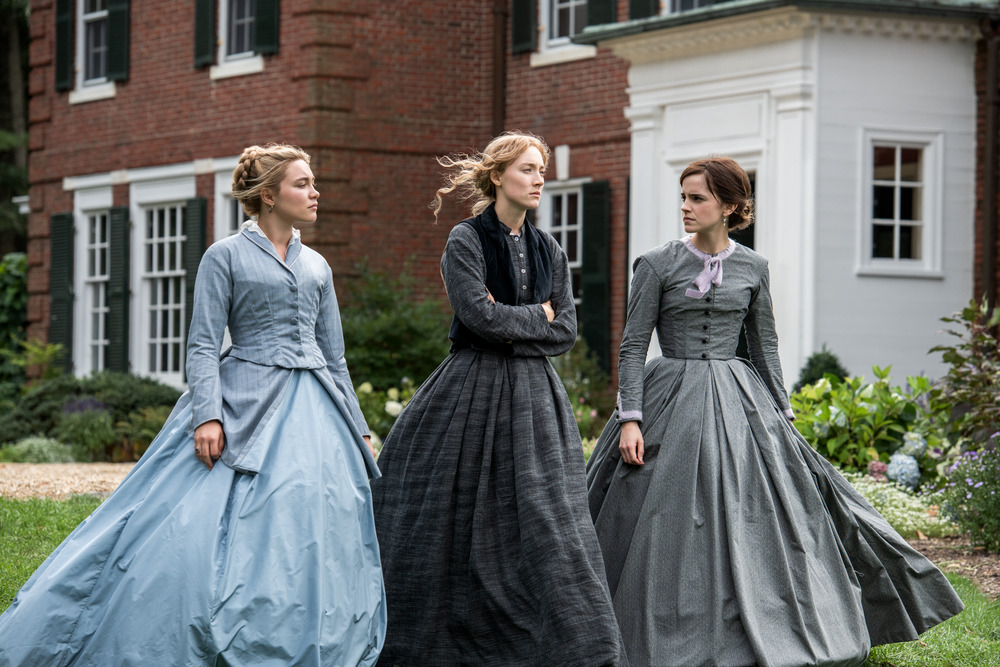
by Erika Plunkett | Dec 18, 2019 | Arts and Entertainment, News Slider
Based on the novel of the same name, Little Women explores the complexities of life through the four March sisters. Director Greta Gerwig artfully recreates Louisa May Alcott’s classic and weaves together a beautiful and visually powerful film. Saoirse Ronan, Emma Watson, Florence Pugh, and Eliza Scanlen headline as Jo, Meg, Amy, and Beth March alongside Timothee Chalamet as Laurie, Meryl Streep as Aunt March, and Laura Dern as Mother “Marmie” March. The chemistry between these actresses and their faithful representations of their characters endear viewers to this family with all of its triumphs and struggles. Jo, an aspiring writer, struggles with discovering her voice, debating between the popular sensationalized drama and the real stories that move and drive our lives. Through love, sadness, separation, disagreements, and the trials of growing up, she can find clarity and discover what she truly wants in life. Alcott’s and Gerwig’s intrinsic understanding of human nature is evident in this story and provides the timeless appeal of this piece. The characters are not afraid to expose their weaknesses alongside their accomplishments, and the family dynamics of the March family take viewers back to their childhoods. The relationships forged among characters welcome viewers into the family, evoking laughter, tears, and sympathetic sighs. The powerful seamlessness of the movie is created through the frame in which the story is told. Each scene comes full circle as it is told alongside flashbacks, giving the full story of the Marches. The juxtaposition of these scenes years apart sheds clarity on the growth of the family, collectively and individually. In addition, the very real and very relatable challenges...
by Cory Woodroof | Aug 13, 2014 | Opinion
If you’re in the film industry and hoping to make a splash at the box office, it never hurts to bring a popular young adult book to the big screen. With post-apocalyptic YA adaptations The Hunger Games and Divergent cashing in with audiences, an adaptation of the legendary novel The Giver couldn’t have been too far behind. Lois Lowry’s Newbery-winning story, a beloved tale about the importance of a vivid life, has been favorite of many since its 1993 bow. Similar to the two titles above (but written far before those two), The Giver centers on a young protagonist (in this case, Jonas) who, within the perimeters of a limiting society, sets off a chain of events that could disrupt the status quo. Even though Katniss and Tris beat Jonas to the cinemas, The Giver stands apart from the stories that followed it. The film’s contemplative ways only serves to push the original ideas of the novel home in a new setting. After an unknown series of events, society has turned into a vanilla world of predestination, paleness and politeness. Children are told what their futures will be, there is no such thing as color and no one ever speaks out of turn or in anger. Even the simplest offenses receive a prompt apology. When he becomes of age, Jonas (Brenton Thwaites), a bright young man, is given his life’s job by a deciding council (anchored by Meryl Streep’s Chief Elder). Jonas is summoned to receive the memories of the past from a man named the Giver (Jeff Bridges) in order to become an adviser to the higher-ups in making...


